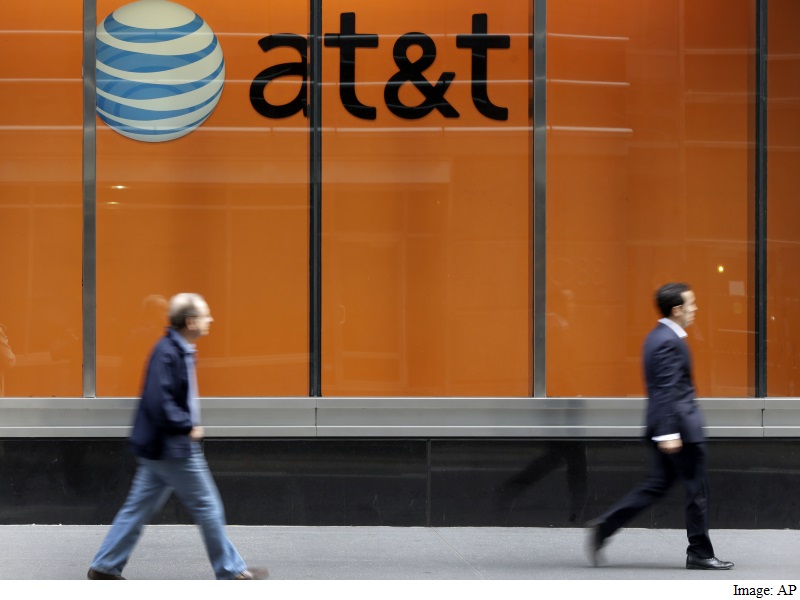- Home
- Telecom
- Telecom News
- AT&T Is Doing Away With the Two Year Contract Once and for All
AT&T Is Doing Away With the Two-Year Contract Once and for All

This has two major ramifications for AT&T customers. First, this means device subsidies are becoming officially obsolete. That discount on a phone you used to get for being locked into AT&T for two years? Gone. Instead, you'll pay for your cellphone either outright in full, or on a monthly installment plan under the company's AT&T Next program.
Second, because AT&T will no longer renew your old contract, you'll enjoy more freedom. So as long as you've fully paid off your device, you'll be able to switch carriers pretty much when you want. If you no longer owe any device payments and decide to stick with AT&T, you'll likely benefit from lower monthly payments because your phone will have been taken care of.
"Our customers are overwhelmingly choosing AT&T Next," the company said in a statement. "Starting January 8, AT&T Next will be the primary way to get a new smartphone at AT&T. This does not apply to business customers under a qualified wireless service agreement."
The change, which was first disclosed in an internal AT&T memo obtained by Engadget, comes after a year of tumultuous changes in the wireless industry. T-Mobile was the first to move away from two-year contracts, followed by AT&T when it initially unveiled its Next upgrade program. (The deal allows customers to switch to a new handset as often as every year.) Verizon was the next to follow suit. And Sprint lets customers lease their phones for a monthly payment.
It also reflects a growing trend by the industry to adopt new business models, leaving others behind. Today, wireless carriers make much of their money selling data and services that run atop those mobile Internet connections - not text messages, voice service or handsets. (Though part of the reason companies are allowing more frequent upgrades is because the traded-in phones are likely to fetch a fair price on the used handset market.) That's poised to accelerate as Americans consume more data on lucrative, metered plans.
One potential downside of the end of contracts is that consumers will have to confront the full cost of their devices, now that the true price isn't being obscured by a phone subsidy. The question is, will more people choose to pay for their phones in full from the get-go, or will they opt for installment plans that let them upgrade every year? If the former, people may end up keeping their devices for longer. If the latter, we'll see greater turnover in handsets.
Given the pace changes in technology and how greatly we value novelty, I'd put my money on the latter.
© 2016 The Washington Post
Get your daily dose of tech news, reviews, and insights, in under 80 characters on Gadgets 360 Turbo. Connect with fellow tech lovers on our Forum. Follow us on X, Facebook, WhatsApp, Threads and Google News for instant updates. Catch all the action on our YouTube channel.
Related Stories
- Samsung Galaxy Unpacked 2025
- ChatGPT
- Redmi Note 14 Pro+
- iPhone 16
- Apple Vision Pro
- Oneplus 12
- OnePlus Nord CE 3 Lite 5G
- iPhone 13
- Xiaomi 14 Pro
- Oppo Find N3
- Tecno Spark Go (2023)
- Realme V30
- Best Phones Under 25000
- Samsung Galaxy S24 Series
- Cryptocurrency
- iQoo 12
- Samsung Galaxy S24 Ultra
- Giottus
- Samsung Galaxy Z Flip 5
- Apple 'Scary Fast'
- Housefull 5
- GoPro Hero 12 Black Review
- Invincible Season 2
- JioGlass
- HD Ready TV
- Laptop Under 50000
- Smartwatch Under 10000
- Latest Mobile Phones
- Compare Phones
- Redmi Turbo 5
- Redmi Turbo 5 Max
- Moto G77
- Moto G67
- Realme P4 Power 5G
- Vivo X200T
- Realme Neo 8
- OPPO Reno 15 FS
- HP HyperX Omen 15
- Acer Chromebook 311 (2026)
- Lenovo Idea Tab Plus
- Realme Pad 3
- HMD Watch P1
- HMD Watch X1
- Haier H5E Series
- Acerpure Nitro Z Series 100-inch QLED TV
- Asus ROG Ally
- Nintendo Switch Lite
- Haier 1.6 Ton 5 Star Inverter Split AC (HSU19G-MZAID5BN-INV)
- Haier 1.6 Ton 5 Star Inverter Split AC (HSU19G-MZAIM5BN-INV)
















